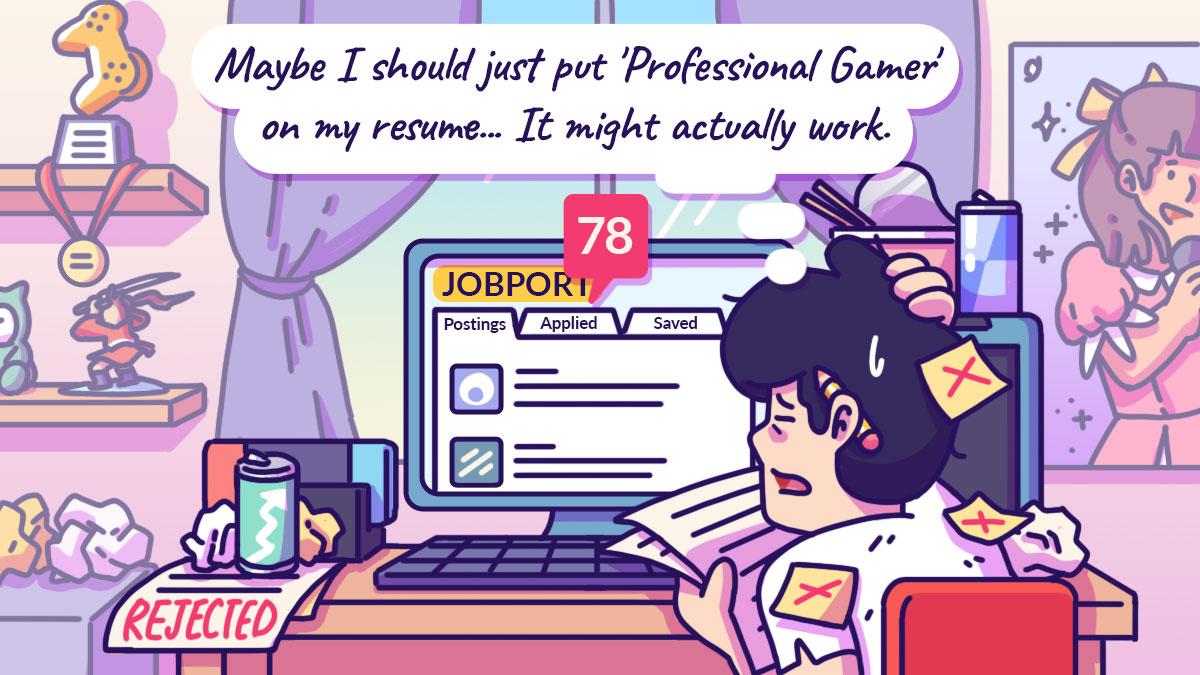Got that one friend who’s always switching jobs every year or so? Or maybe you know someone who’s been with the same company since forever, even though they’ve felt stuck for just as long?
Sometimes, the ones who leave get labelled “disloyal”. But those who stay? They get asked why they’re not aiming higher. And some of them, while still physically present at work, clocking in, answering emails, and joining meetings, have already mentally clocked out. They’re just getting through the week doing the bare minimum, and already counting down to Friday, on a Monday morning.
These days, disloyalty at work isn’t as black and white as it used to be. It’s not always about handing in your notice. Sometimes, it’s about staying but no longer caring.
So, what does it really mean to be “disloyal”? When is it time to move on? And more importantly, is disloyalty always a bad thing?
Disloyalty isn’t just about resigning
Disloyalty at work tends to show up in two ways: physical and psychological. The physical kind is easy to spot: quitting your job, job-hopping, or being frequently absent. But the psychological kind? It’s a little more subtle. It shows up when you’ve lost your spark, stopped caring about your work, or are just showing up for the paycheck.
Sometimes, this looks like quiet quitting where you clock in and out on time, do what’s asked of you, but you’ve stopped trying to grow or contribute beyond the bare minimum. And it’s not always about being lazy. Often, it’s because you’re tired, disappointed, or you feel like your efforts just aren’t valued.
The problem is, many people think “It’s fine, as long as I haven’t actually resigned.”
But disengagement can do real damage. Quiet quitters can bring down team morale, hurt productivity, and chip away at trust between colleagues. Over time, it’s not just the company that suffers – it’s the employee’s own career too.
But… why do so many people still leave?
If disloyalty isn’t always about quitting, then why do so many still choose to walk away?
One reason? Loyalty doesn’t always get rewarded.
Some people take on more responsibility, work late without complaining, and barely use their annual leave. And what do they get? Not a promotion, but more work.
According to a Duke University study, managers tend to give loyal employees more tasks, without extra compensation or recognition.
ScienceAlert also pointed out that loyalty is often misread as “willingness to sacrifice”. The result? Faithful employees end up being taken for granted, or worse, exploited.
Others simply feel stuck, stagnant, or on the edge of burnout. At that point, leaving doesn’t feel like betrayal, it feels like survival. For some, disloyalty isn’t a bad move. It’s an act of self-preservation.
Disloyal = More money?
And let’s be honest, quitting isn’t always a step backward. In many cases, it’s a leap forward.
A ResumeBuilder survey found that 1 in 4 Gen Z job hoppers reported pay rises of up to USD50,000. Meanwhile, Forbes reported that 64% of job hoppers felt their careers progressed faster because they switched roles.
Closer to home, a survey by Milieu Insight found that attitudes towards job hopping were largely neutral in countries like Singapore, Thailand, and Vietnam, suggesting that job-hopping is not necessarily stigmatised.
So, it’s no surprise that more people are asking: “Why stay stuck, when you could be somewhere that actually values you?”
But don’t forget, this sword cuts both ways
Disloyalty might come with better pay or a faster career boost, but that doesn’t mean it’s risk-free.
Constant change can be exhausting.
Every time you move, you have to learn a whole new team dynamic, adjust to a different work culture, and rebuild trust from scratch.
The stigma still exists.
Even if job-hopping is more common now, not every employer sees it as a good thing. Some might still think, “Will this person actually stick around?”
You might miss out on long-term growth.
If you switch too often, you could lose the chance to build meaningful relationships, grow under a mentor, or establish your reputation within one company.
Loyal to the goal, not just the place
At the end of the day, loyalty matters. But what matters more is who – or what – you're choosing to stay loyal to.
Sometimes, what looks like disloyalty is actually a signal, a sign of deeper problems like poor leadership, lack of recognition, or a toxic work culture. And if handled with honesty, it could spark much-needed change, both for the company and for you.
If you're still growing, feel appreciated, and remain engaged in your work, your loyalty might still be worth holding onto.
But if you're only staying because you're afraid of being judged, even though you've already lost your sense of direction, maybe it's time to reset your internal compass.
Because real loyalty isn’t just about how long you’ve stayed in one place. It’s about whether that place still aligns with your values and where you’re headed in life.
So maybe the question isn’t: “Should I stay loyal?”, but rather: “What exactly am I fighting for here?”
Sometimes, the answer means staying. Sometimes, it means leaving. What matters is that you know why.











